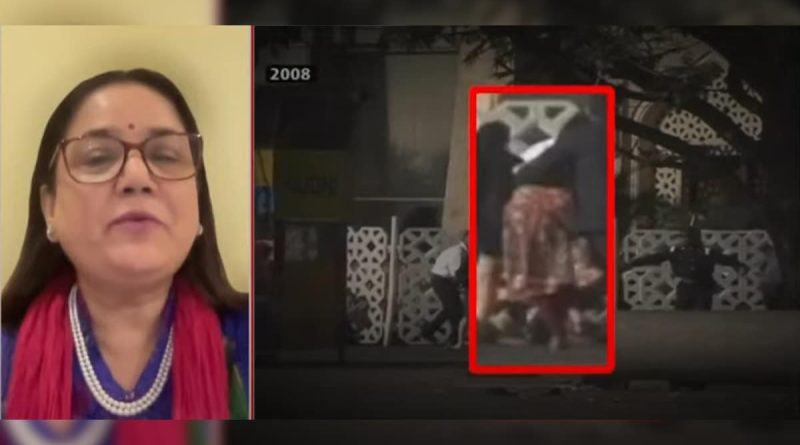Survivor Discovers Herself in NDTV’s 26/11 Footage, Evoking Memories
Revisiting the Fateful Night at Taj Mahal Hotel
On the night of November 26, 2008, Rajita Kulkarni, a banker-turned-educator, found herself in the midst of a terrifying ordeal at the iconic Taj Mahal Hotel in Mumbai. The hotel, known for its grandeur and history, became the site of one of the most devastating terrorist attacks in India. That night, Kulkarni was dining at Masala Kraft, an Indian restaurant within the hotel, when the unexpected horror unfolded.
A Night of Terror
As the attack commenced, chaos ensued within the hotel. Kulkarni, along with her husband Ajay Bagga and a guest, a member of the European Parliament, was caught in the crossfire. Speaking to NDTV years later, she identified herself and her husband in footage from the night, reflecting on the traumatic memories. “We were in Masala Kraft and then we were asked to move to the chambers. We were guided through the back areas of the service entrances, through the kitchen areas into the chambers,” she recounted, visibly moved by the memories.
Surviving the Hostage Situation
The guests were asked to evacuate, but as gunfire erupted, their escape routes were cut off. Kulkarni found herself among 200 others, including CEOs and MPs, in a hostage situation that lasted until the following morning. They were finally freed when the National Security Guard (NSG) arrived to rescue them. Kulkarni expressed her gratitude towards the staff of the Taj Mahal hotel for their courage and dedication, “The entire team of Taj Mahal hotel went above and beyond their call of duty to protect us and make us secure,” she said.
Tahawwur Rana’s Extradition: A Step Towards Justice
Years after the attacks, the extradition of Tahawwur Rana, a key figure linked to the planning and execution of the attack, marks a significant milestone. Rana, a former Pakistan Army doctor, was instrumental in providing logistical and financial support to David Headley, a central conspirator. Charged with criminal conspiracy, waging war against India, and other serious offenses, Rana’s return for trial is seen as a “monumental achievement for our country,” according to Kulkarni. She expressed her gratitude towards Prime Minister Narendra Modi, External Affairs Minister Dr. S Jaishankar, former US President Donald Trump, and the US Supreme Court for their roles in facilitating the extradition.
A National Trauma and the Pursuit of Closure
When asked about finding closure after such a traumatic experience, Kulkarni admitted, “You can never get closure on an incident like this, it’s a national memory, a national trauma, the city of Mumbai, the pulse of the country was attacked.” While the memories remain painful, she hopes that remembering the incident will strengthen national security and prevent future occurrences. She emphasized, “We should not forget an incident like this so that we can continue to uphold our national security and ensure something like this never happens again.”
The Path Ahead
As Tahawwur Rana, now 64, faces trial in India after exhausting his legal options in the US, the pursuit of justice continues. His involvement in the attacks has been well-documented, and the charges against him are severe. The legal proceedings will be closely watched, serving as a reminder of the resilience of those affected and the ongoing fight against terrorism. For survivors like Kulkarni and the families of those who lost their lives, this trial represents a step towards healing and holding those responsible accountable.

